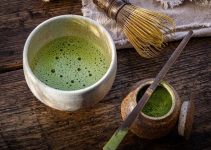Ginger is a plant endemic to China plus is considered one of the healthiest herbs on the planet. Its scientific name is Zingiber officinal, and it is a member of the Zingiberaceae family.
It is incredibly high in nutrients and bioactive compounds and therefore has a beneficial effect on the entire body.
Since it is especially effective in treating ailments with the digestive system, many people consider ginger as “a remedy for everything.” Its high content of enzymes helps digestion and produces detoxification to the body.
Ginger side effects
Depending on how ginger is consumed, it can cause some side effects. These adverse effects are generally mild for people who react.
Ginger is reasonably safe when taken properly. However, it can produce mild side effects like:
- Heartburn
- Burping
- Diarrhea
- Nausea
- Stomach discomfort
- Abundant menstrual bleeding
- Irritation on the skin
- Abdominal pain
- Gastrointestinal upset
Also, some clinical studies reported some unfavorable side effects:
Ginger Side Effects Reported in Clinical Studies
Seventeen studies were conducted on the adverse effects of ginger use. Most of these studies found adverse effects that were not thought to be severe or harmful to the participants.
- Gastrointestinal-related: The adverse effects were mainly gastrointestinal. Most of the symptoms (gastrointestinal-related) didn’t seem to counteract the digestive benefits of ginger in other areas.
- Heartburn: a common symptom of gastroesophageal reflux disease (GERD) was reported in 16 studies.
- Nausea: Five studies have reported nausea as a possible side effect of ginger treatment, which was the prime indicator of the clinical effectiveness of ginger.
- Diarrhea: occurred in two studies among patients with heavy menstrual bleeding and after a cesarean section.
- Gas & abdominal pain, were also common.
- Respiratory and cardiovascular symptoms: Furthermore, a study found respiratory signs and cardiovascular symptoms in one ginger-treated patient who underwent laparoscopic surgery.
- Gastrointestinal upset: In a study, 27 people took a dose of 100mg to 2g of ginger daily for a month and reported minor gastrointestinal upset as the only side-effect.
Ginger: who should never use it
Even though ginger is helpful in innumerable health problems and conditions, it is not recommended in some circumstances.
As in these cases:
1. People with blood disorders
This root increases blood flow and stimulates circulation, which is why it is beneficial for obesity, diabetes, Raynaud’s disease, or peripheral arterial disease but should be avoided by people who have hemophilia.
Hemophilia is an illness that makes the blood clot too slowly or not at all, which means if you have hemophilia, you are more likely to die from a bleeding injury.
Hence, ginger can counteract the effects of these medications and worsen bleeding.
2. People consuming certain medications
People who use medication for high blood pressure and diabetes belong to the particular risk group since ginger can change its effects on the body.
Combinations of ginger with blood thinners, beta-blockers, or insulin drugs can be extremely harmful.
Ginger stimulates blood thinning and lowers blood pressure, and these properties reduce the effects of these medications.
3. Underweight people
If you need to gain some weight, you should not consume ginger or take ginger-based supplements, as this root is high in fiber and stimulates digestive enzymes.
Hence, it leads to fat burning, reduces food cravings, and leads to further weight loss.
4. Pregnant women for a certain time
Ginger is rich in stimulants that support muscle health and aid digestion. However, its usage while pregnant can lead to premature contractions and preterm labor.
Note that its use is not recommended in the final trimester of pregnancy. Furthermore, consider the fact that it inhibits the absorption of fat-soluble vitamins and dietary iron.
However, women can consume ginger in small amounts; it relieves morning sickness, but be sure to consult your doctor beforehand.
Conclusion
Ginger is excellent both as a food and as a natural treatment. It has been used as a natural remedy for a long time.
Nevertheless, we must bear in mind that people with certain health conditions and consuming certain medications should avoid consuming ginger and only consume it under medical supervision.





